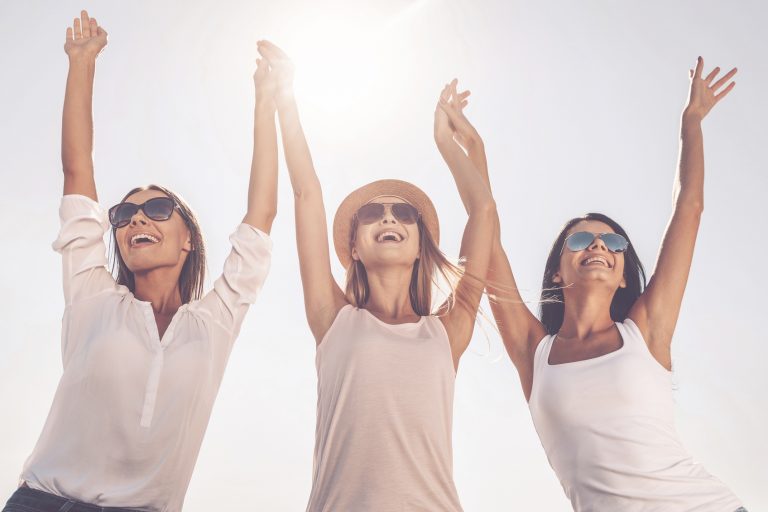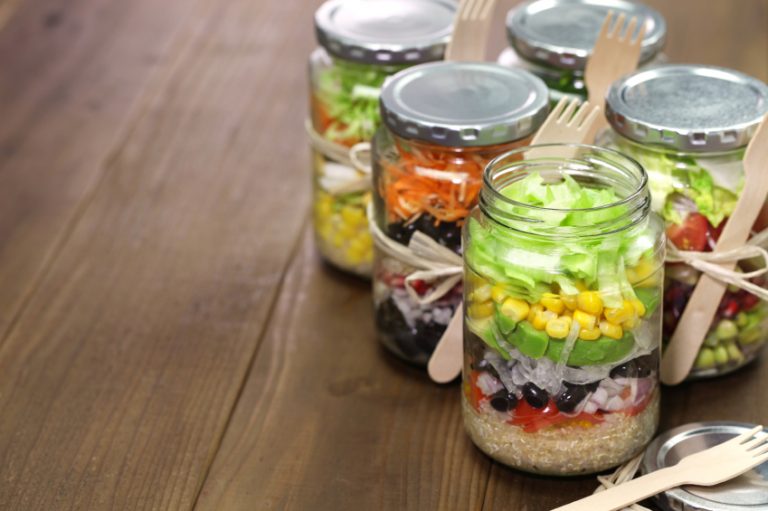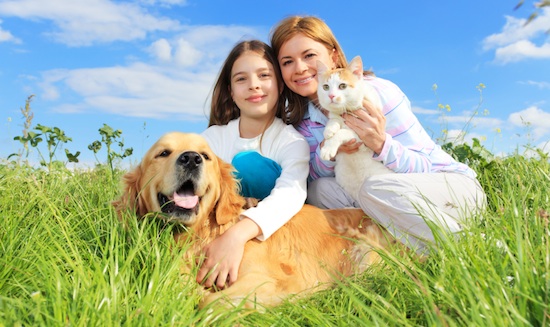Woman of Influence: Leah Segedie, Creator of Mamavation
June 1, 2017
Leah Segedie doesn’t have a whole lot of down time. She lives in Simi Valley, California, with her husband and three boys, aged five, eight, and eleven. She created the website, Mamavation, which promotes health and environmental sustainability, and connects mom bloggers with healthy and eco-friendly brands. To help unite and build the eco-wellness influencer community, Segedie created ShiftCon, an annual influencer conference that focuses on “food, wellness, health, sustainability and platform growth,” according to the website. Sedgie is also writing a book on how to eliminate health and environmental hazards in the home. Her goal is to spread the word about health and wellness, and as her press page demonstrates, she is having an impact.
When she has some time to herself, Segedie enjoys hiking, kickboxing, and wine with friends. Her life is hectic—but she has no intention of slowing her pace. “I like to change things up,” she says. “My goal is to get out in front and when other people get there, I move on to the next thing.”
Can you talk about your background and how you got where you are today?
Before I had my first son, I was morbidly obese. I was a size 24. I was obese because I ate fast food and drank a six-pack of Diet Coke every day. I was a very busy woman: I was a field representative for two different assembly people. Fast food was my go-to. I didn’t exercise. I was young and I wasn’t concerned about my health.
But three month after my first son was born, my father died from of cancer and I had a “Come to Jesus” moment. I was no longer a daughter, I was a mother, and I wanted my son to be healthy. I realized that the only way to make his life better was to change mine. I was depressed —I think I had some postpartum depression. I was so low at that point that the only way I could look was up.
I knew I had to give up soda and fast food. I went cold turkey. I also began walking around my apartment complex, just short walks at first. When you’ve been relying on fast and processed food and you stop eating it, you suddenly get why this isn’t good for you. I know that I will never be able to go back there. But I started off with small goals. I said to myself, I want to lose five pounds. I lost the weight really quickly, and that was empowering and awesome.
Then I started reading labels and saw all the chemicals in the food we eat. I would go home and Google ingredients and try to figure what these chemicals were and what they were doing in our food. I wasn’t a chemist but I knew intuitively that if food was less processed and contained fewer chemicals, it was probably better for you. So I started eating more fresh fruit and vegetables and cooking more.
Over the course of two years I lost between 100 and 120 pounds. I realized I wanted to help other women who were struggling with their weight and their health. So I started the website, Bookieboo.com. The point behind the website was to inspire moms to model healthy behavior for their children. Sometimes doing things for ourselves isn’t as motivating as doing things for other people—this is especially true for moms, I think. My story resonated with the traditional media, and I got picked up and featured in a lot of outlets, which helped spread the word. And I got on Twitter. In those days—this was about ten years ago–there wasn’t as much spam on Twitter. It was more of a conversation.
I started the website, Mamavation, because I wanted to do more one-on-one work. Four times a year we’d select two women who wanted to lose weight and improve their health. We’d assign them a dietician and as a community we’d support them through a seven-week bootcamp. Over a five-year period, the woman in our Mamavation community lost a total of 3500 pounds.
But after awhile I found that some women just couldn’t seem to lose weight, and some got sick after they went through the weight-loss program. I realized that I was equating weight with health. In fact, you can be a size eight and be more healthy than someone who is a size two. So I shifted the focus to health deposits: actions you can take every day to be more healthy. Meditating, eating more fruit and vegetables, exercise—if you make four to five health deposits a day, you’re going to be feel better and your health is going to improve.
I also got involved in the movement to require labelling for Genetically Modified Organisms (GMO’s) in food, and I worked on state propositions in California, Oregon, and Washington. My new career met my old, and it started my life in the green sustainable movement. In the past I’d tuned out environmentalists because I thought they all wore Birkenstocks and didn’t dye their hair. But I really liked what they had to say. I realized that working in the area of health and environmental sustainability was where I wanted to be.
What is your main focus at the moment?
I’ve realized that I enjoyed working on making people healthy, not making them feel bad about being overweight, so that changed the focus of my website, Mamavation. Our tagline is, “Changing Lives one Mom at a Time.” We have a tremendous influencer network, and we connect mom bloggers with non-GMO and organic brands. We throw regular Facebook and Twitter parties to introduce consumers to healthy, environmentally sustainable brands.
We also do investigations on different consumer products and place them into one of three categories: bad, better, and best. The products in the “best” category are of high enough quality that we feel comfortable promoting them. We just did an investigation of shampoos, for example.
My job is to give consumers information about the products they use, and to encourage them to reach out to companies that threaten human and environmental health. Consumer pressure makes a big difference to companies in terms of motivating them to use healthier ingredients. If shareholders see that consumers care, they will push for change. There have been changes in a lot of products, like mac and cheese, for example: they’ve gotten rid of chemicals in some of the popular brands. It’s happening with a lot of beauty products too. I’ve been floored by how quickly change can happen.
How did the conference, ShiftCon, come about?
A few years ago at the Blogher conference, a bunch of us noticed that Coca-Cola was a conference sponsor. Those of us in the eco-wellness community decided we needed a place to call our own. Everyone turned to me and said, “When are you going to organize a conference?”
I had the names of 10,000 bloggers, and had the contacts to pull in the bloggers and the brands. I looked into it and concluded that it would be really hard to do. But I like a challenge. The fact that I lost over 100 pounds made me realize I could do this, too.
It took a year and a half to plan the first conference, and now we’ve been doing it for four years. The next ShiftCon will be held in Irvine, California, in February, 2018. Ninety-nine percent of our attendees are women. Most are influencers; they cover food, parenting, and the environment. At ShiftCon, you are never judged for how green you are. Some attendees are mentors: deep green women who know the science about environmental sustainability and wellness. Others are newbies, and we welcome them because they are reaching consumers we can’t. Everyone is working toward the same goals.
One of the hardest things about putting on the conference is providing healthy, sustainable food for our attendees. It sounds simple, but it’s harder than you think. But we have done it.
Shiftcon comes from my heart.
What issues will you cover in your book?
I am writing a book for Rodale press on detoxifying your home. We’ll look at cleaning brands, appliances, furniture, and other household products and create bad, better, and best categories, like we do on the website. The book will be irreverent, I’m telling it like it is. Moms don’t have time for bullshit, they need answers and they need them quick. So I hope the book will break through the bullshit.
The book will be aligned with science. I have two advisors, scientist Pete Myers and pediatrician Tanya Altman, who are helping me explore what the science says about different products. In some cases, synthetic chemicals are actually healthier than natural ingredients—this is true of some dyes used in makeup, for example. The book will focus a lot on endocrine-disrupting chemicals, which are in many consumer products. We’ll also provide information on alternative products, and tell you how to make some healthier alternatives at home.
What is your goal as an influencer?
I want to get up in the morning and make the world a better place. Promoting health and wellness is really important to me. So many people are impacted by disease and cancer—including people in my own family. My father died of cancer related to his exposure to asbestos as a railroad engineer. My aunt died of breast cancer, and my uncle died of lung cancer. I consider my ancestors and I think, ‘Aren’t you proud of me?’ I do it for them and for the next generations: I want people in the future to be healthy and happy.





